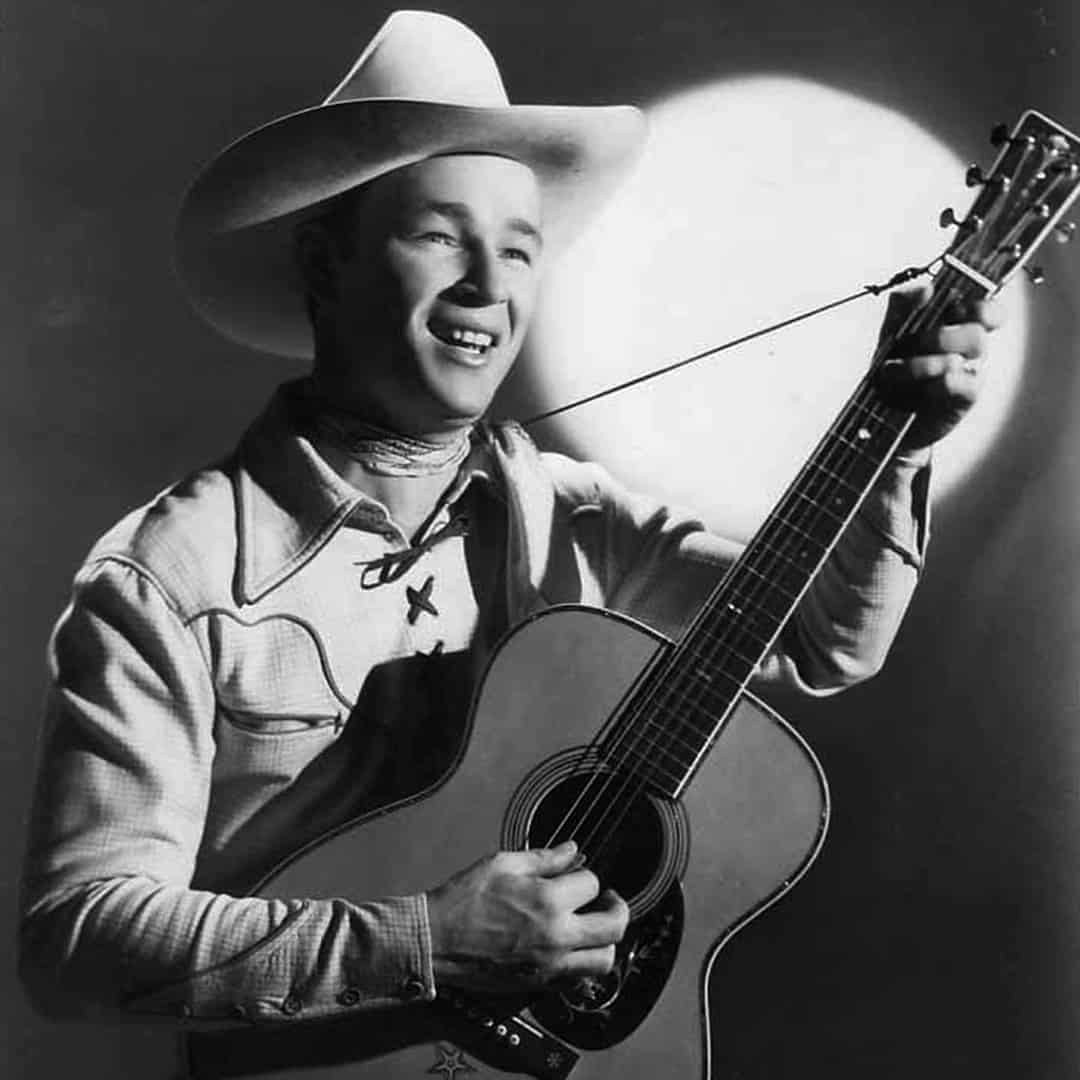Tex
Ritter

-
Inducted1964
-
Born
January 12, 1905
-
Died
January 2, 1974
-
Birthplace
Panola County, Texas
Early Life and Musical Pursuits
Tex Ritter was the most well-versed of all Hollywood’s singing cowboys. Born Woodward Maurice Ritter in Panola County, Texas (where Jim Reeves was born), Ritter was raised with a deep love of western music. When he entered the University of Texas at Austin in 1922, he met J. Frank Dobie, Oscar J. Fox, and John Lomax—three of the most noted authorities on cowboy songs, who added further to his knowledge of western music. While studying law in college, Ritter had his own weekly radio program, singing cowboy songs on KPRC in Houston.
In 1928, Ritter went to New York, where he worked for a short time in a Broadway musical production. He then briefly attended Northwestern University in the Chicago suburb of Evanston, Illinois. Short of funds, he soon returned to New York, where he worked in several Broadway productions, including Green Grow the Lilacs. (A decade later, Rodgers and Hammerstein adapted the play as Oklahoma!) While in New York, Ritter also worked regularly on a variety of radio programs and, in 1932, made his first commercial recordings, which went unissued at the time.
00:00 / 00:00
00:00 / 00:00
00:00 / 00:00
Singing Cowboy Stardom
By mid-decade, the enormous success of Gene Autry’s westerns led other film studios to look for their own singing cowboys. One of the first producers to recognize Ritter’s potential was Edward Finney, who signed him and released his first starring film, Song of the Gringo, in 1936. Ritter was well suited to the role of singing cowboy. He looked and acted the part and was singing the type of songs he loved best. Unfortunately, most of his films were made for Grand National and Monogram, two of the so-called “Poverty Row” studios, which made their films on shoestring budgets. Although Ritter’s films never had the production values of those starring Gene Autry or Roy Rogers, he still enjoyed considerable box-office success.
In 1942, after a decade of recording with little success, Ritter became one of the first artists signed by the newly formed Capitol Records. He soon began scoring major hits with records such as “Jealous Heart,” “Rye Whiskey,” “I’m Wastin’ My Tears on You,” and “You Will Have to Pay.” Ritter would remain with Capitol for the rest of his life.
A different type of film opportunity came to Ritter in 1952, when he was asked to sing the title song of the Gary Cooper–Grace Kelly western, High Noon. The song was used as a narrative throughout the film and became Ritter’s signature song. He went on to record several other western theme songs throughout the decade.
Ritter was among the first country & western artists to record concept albums built around a central theme.
Videos
“Kalamity Kate” with Bob Wills & His Texas Playboys
Take Me Back to Oklahoma, 1940
“High Noon (Do Not Forsake Me)”
The Jimmy Dean Show, 1963
Later Career
Ritter was among the first country & western artists to record concept albums built around a central theme, as he recorded albums of cowboy songs, patriotic songs, hymns, and Mexican songs as well as albums of country music. In 1961, he recorded “(I Dreamed of a) Hillbilly Heaven,” which became another of his biggest hits and displayed the fine way he delivered recitations. Ritter became involved with the formation of the Country Music Association and, in 1963, was elected its president. In this role, he helped oversee the building of the original Country Music Hall of Fame and Museum on Nashville’s Music Row.
In 1965, Ritter’s growing involvement in country music led him to move to Nashville, where he co-hosted the late-night country music radio program on WSM with Ralph Emery and joined the Grand Ole Opry. In 1970, Ritter ran unsuccessfully for the Republican nomination to the U.S. Senate. Ritter’s death on January 2, 1974, marked the passing of one of C&W music’s finest and most respected talents.
—Laurence Zwisohn
—Adapted from the Country Music Hall of Fame® and Museum’s Encyclopedia of Country Music, published by Oxford University Press
Photos
-
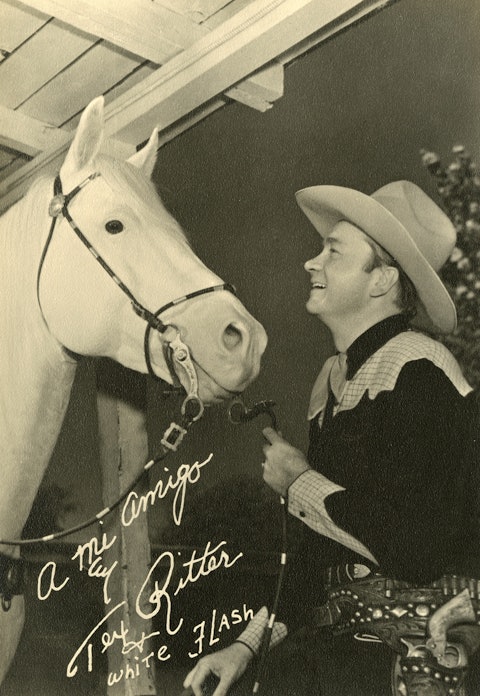
Publicity photo of Tex Ritter and his horse, White Flash, that appeared in more than two dozen of the star’s westerns between 1936 and 1943.
-
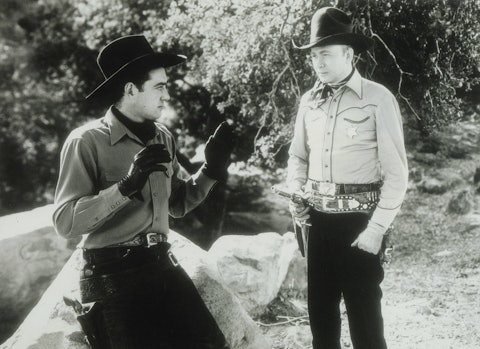
Movie still of Tex Ritter (right) from his 1944 western Marked for Murder.
-
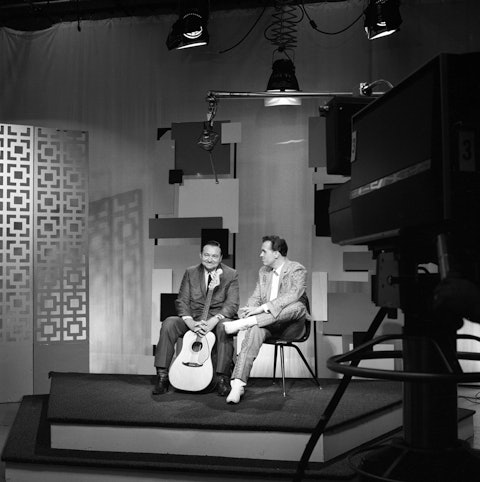
Tex Ritter (left) and Bill Anderson on the set of The Bill Anderson Show, which aired on Nashville’s ABC affiliate, WSIX-TV, from 1964 to 1975.
-
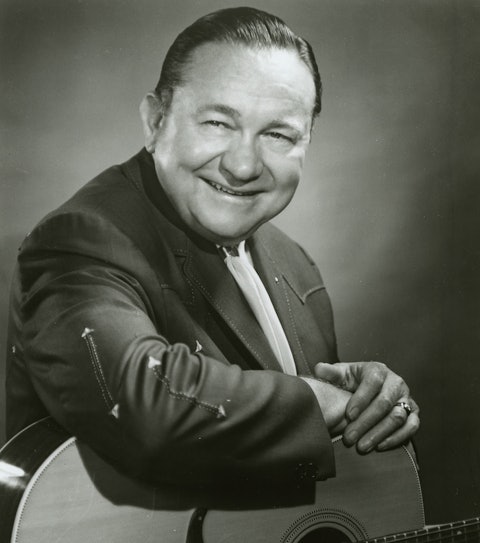
Publicity photo of Tex Ritter released by Capitol Records and Acuff-Rose Artists Corporation, c. early 1970s.
-
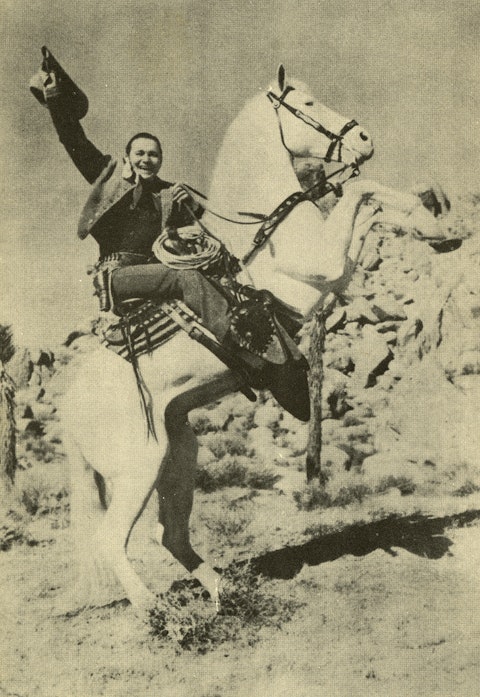
Publicity photo of Tex Ritter riding his horse, White Flash, c. 1940s.
-
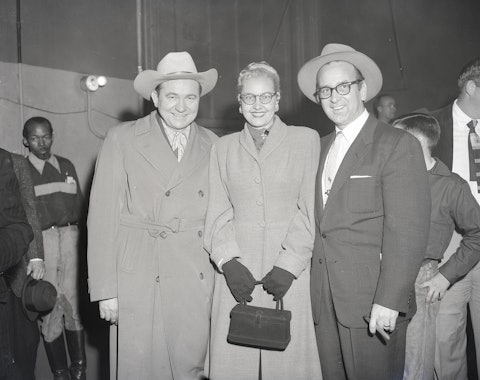
Tex Ritter (left) with Gabe Tucker and his wife, Sunshine Tucker, who was Gulf Coast public relations representative for Mercury–Starday Records, c. 1958. Photo by Elmer Williams.
-
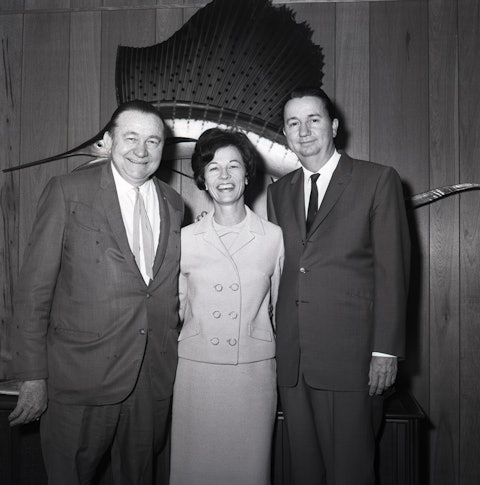
Tex Ritter (left), Jo Walker, and Johnny Bond at the offices of Hubert Long International, in Nashville, c. 1960s.
-
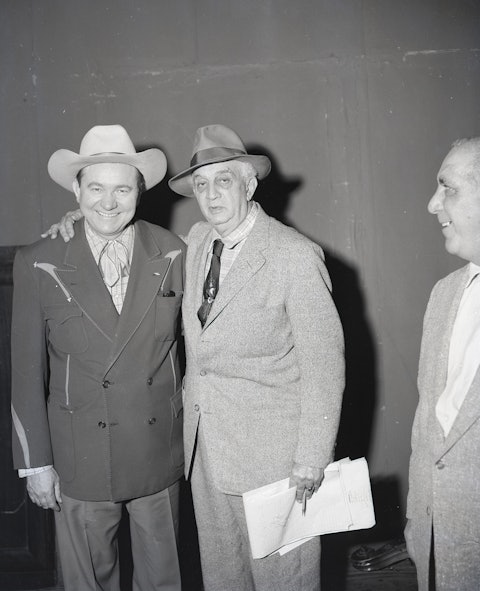
Tex Ritter (left), Grand Ole Opry stage manager Vito Pellettieri (center), and manager and promoter Al Flores, backstage at the Grand Ole Opry, c. late 1950s. Photo by Elmer Williams.
-
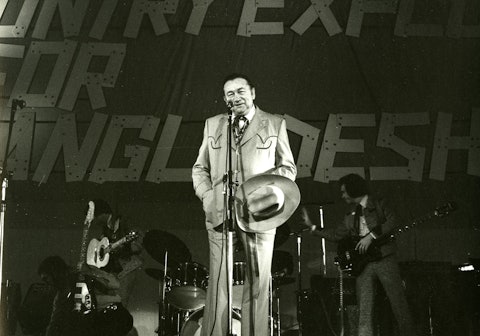
Tex Ritter (center) and unidentified musicians during a 1972 live performance in Japan, part of a CMA/UNICEF tour of that country, Australia, and New Zealand. Proceeds from this tour were donated to benefit the children of Bangladesh. Photo by Seiji Wada.
-
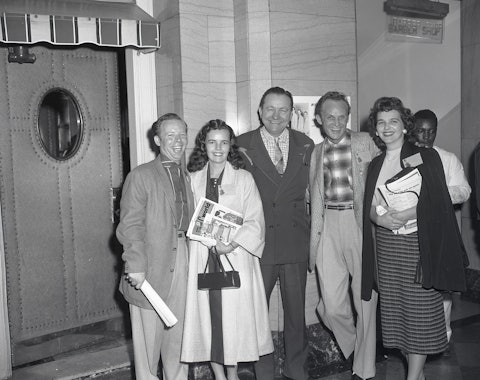
Tex Ritter with the Louvin Brothers and their wives, possibly at the Disc Jockey Convention, in Nashville, c. late 1950s. From left: Charlie Louvin, Betty Louvin, Tex Ritter, Ira Louvin, and Faye Louvin. Photo by Elmer Williams.


